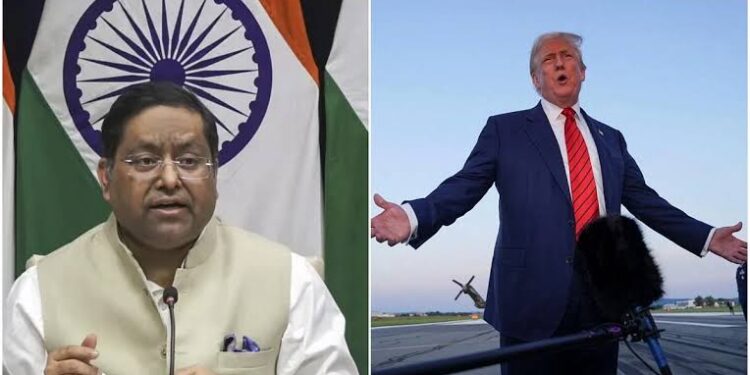India has reaffirmed that its energy decisions are based on national interest and consumer welfare. This came after US President Donald Trump claimed Prime Minister Narendra Modi assured him that India would stop buying oil from Russia.
In a statement on Thursday, the Ministry of External Affairs (MEA) said India’s energy imports aim to protect consumers from global price volatility.
“India is a major importer of oil and gas. Our top priority is to safeguard the interests of the Indian consumer in a changing energy scenario. All our import policies are guided by this objective,” said MEA spokesperson Randhir Jaiswal.
Trump’s Remarks
On Wednesday, speaking to reporters at the White House, Trump said that Prime Minister Modi had promised to stop Russian oil purchases.
“I was not happy that India was buying oil. And he (Modi) assured me today that they will not be buying oil from Russia. That’s a big stop,” Trump told reporters.
He also said that the change would not happen immediately but within a short time. The US President added that he would urge China to take a similar decision.
India’s Stand
The MEA responded by emphasizing India’s long-term energy goals — stable prices and secure supplies.
“Ensuring stable energy prices and secured supplies have been the twin goals of our energy policy. This includes broad-basing our energy sourcing and diversifying as needed to meet market conditions,” Jaiswal said.
He also pointed out that India has been expanding its energy cooperation with the United States for many years.
“With the US, we have sought to grow our energy trade and cooperation for more than a decade. The current administration has shown strong interest in deepening this partnership. Discussions are ongoing,” he added.
Background
India has often stated that its oil imports from Russia are driven by energy security and affordability, not politics. The government focuses on keeping domestic fuel prices stable while ensuring a reliable supply.
New Delhi and Washington continue to discuss ways to strengthen their energy ties, including oil, gas, and renewable energy cooperation.





























